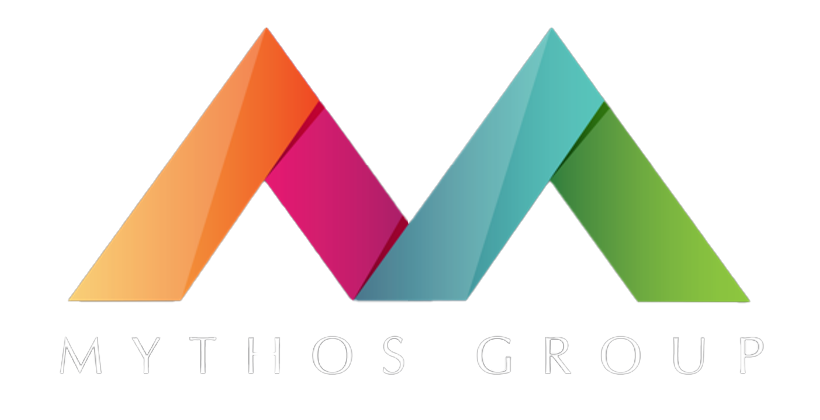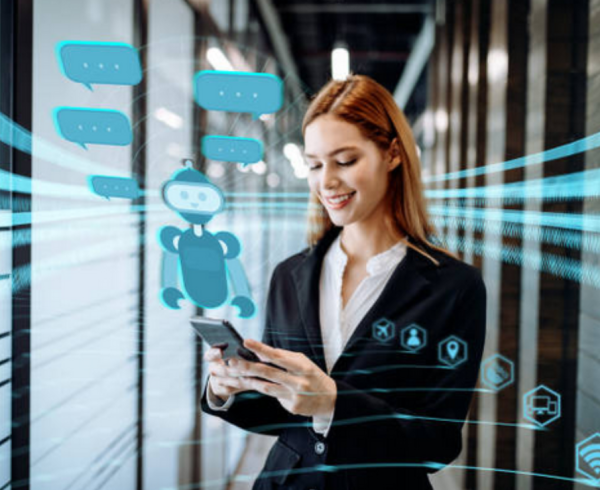Which Types Of Organizations Can Benefit From An AI Chatbot?
We’re dubbing 2024 as the “year of the chatbot,” and for good reason. More and more organizations are implementing chatbots to reap benefits like:
- Up to a 67% increase in sales
- Conversion rates of up to 70%
- Up to a 25% increase in revenue
- Up to 2.5 times their current sales conversion rate
- Billions of hours of time saved
But while some AI chatbot use cases are obvious, such as using them to provide 24/7 customer support with fewer resources, there are hundreds of ways chatbots can assist organizations in improving customer satisfaction, adding revenue, and distinguishing themselves from competitors.
In this article, we discuss common reasons why organizations are adding chatbots to their workflows outside of the customer service realm and creative use cases by industry.
Top Reasons Why Organizations Are Implementing AI Chatbots
Of the many ways companies can utilize AI chatbots, we’ve seen the following motivators surface most frequently.
To Personalize Interactions
Consumers these days don’t just appreciate personalized brand experiences – they expect them. In fact, nearly 75% of polled consumers expressed frustration at content that doesn’t recognize and match their personal interests. On top of that, 80% of consumers say they’re more likely to make a purchase when offered a personalized brand experience.
Chatbots can provide individualized content and interactions by:
- Making hyper-personalized recommendations based on past purchases or interactions
- Creating user profiles to adapt to each visitor’s preferences and interests
- Responding in the user’s native language
- Providing customized offers
- Using specific terms and expressions that resonate with your audience
Personalized interactions make customers feel heard and understood and help them find what they need faster, creating an overall positive brand experience.
To Increase Organic Traffic
Having a chatbot can improve your site’s search engine optimization (SEO) in a number of ways. Chatbots can:
- Analyze and adapt to a user’s search intent
- Increase user engagement and time spent on your site, which search engines greatly consider in rankings
- Identify critical user-driven keywords aligned with your audience’s search preferences and make recommendations for better SEO headlines
- Optimize your site’s mobile-friendliness
- Drive additional organic traffic via bulk chat blast campaigns (similar to email blasts, but with a chatbot instead)
An increase in organic traffic means greater brand visibility and a higher chance of conversions.
To Generate Additional Revenue
Chatbots can be monetized, which means they can provide additional revenue streams for businesses that may heavily rely on traffic and engagement. Organizations can monetize chatbots by:
- Incorporating sponsored links, such as product recommendations
- Charging a monthly subscription fee to access certain features
- Upselling based on individualized customer data
- Using a commission-based model, where the organization earns a percentage of any sales made through its chatbot’s recommendations
- Displaying ads within their chatbot feeds
To Collect Customer Feedback
Nearly 90% of consumers engaged with a chatbot at least once in 2022, and that number is only expected to rise. This gives organizations access to data from a wide range of customer interactions that can help improve their service offerings based on what their customers are looking for.
Chatbots can also collect valuable customer information that can be used for future marketing purposes, such as their name, email, phone number, and more. At the end of each interaction, a chatbot can offer a customer satisfaction survey as an additional way to glean insights.
Creative AI Chatbot Use Cases By Industry (With Examples)
Because AI chatbots have such a wide use range, applications vary greatly among industries. Here are some creative ways we’ve seen chatbots used to drive businesses forward.
Media Publisher Chatbots
Nearly half of publishers around the globe are facing decreasing traffic, which ultimately leads to a significant loss of revenue. To survive, many media publishers are implementing new tools such as chatbots to offer additional ways to increase audience engagement.
Large publications like Men’s Health and Wired have found success in growing their audiences by distributing AI chatbots on popular messaging apps like Facebook Messenger and Viber. For example, Wired’s chatbot can provide the latest tech news as it’s happening and answer industry-related questions to keep readers in the know.
Healthcare Chatbots
While “chatbot” and “healthcare” are likely two terms that make you nervous to hear in the same sentence, there are some instances where chatbots can be helpful for your overall health.
Healthcare AI chatbots can:
- Follow up with patients after surgeries
- Assist with appointment scheduling
- Classify patients based on symptom severity, helping providers to triage cases in order of priority
- Help with prescription information and refills
- Track important health data such as weight
To combat problems related to mental health treatment costs and availability, Woebot Health released Woebot, a chatbot that’s trained in cognitive behavioral therapy to provide a listening ear 24/7. While it doesn’t provide therapy, it prompts users with self-reflection questions to help them fix distortions in their thinking.
A study by Stanford University found that chatting with Woebot for two weeks led to a significant improvement in mood.
Public Service Chatbots
Gone are the days of waiting a week or more to receive certain government forms by mail or lengthy holds to request copies of your marriage certificate. Chatbots in the public service industry can also provide emergency alerts, vital safety information, and road construction updates.
These chatbots can even be helpful for journalists, who can request interviews with government officials or gather additional details on press releases in a timely manner.
Travel Industry Chatbots
In service-based industries, chatbots offer a level of convenience for customers who are looking to quickly make hotel reservations, find flights, and complete the booking process.
Several airlines have used chatbots to:
- Help users navigate confusing airports by providing airport layouts and directions to terminal amenities
- Notify passengers about flight updates, such as time or gate changes
- Track baggage
- Request refunds or changes (without spending time waiting in lengthy phone queues)
- Provide personalized recommendations, such as flight upgrades and destination suggestions
Turkish Airlines, for example, offers its chatbot travel assistant, named Boti, to make it easier to find special offers, check in for flights, and even answer more complex queries such as questions about tariffs and cargo status.
Manufacturing Chatbots
Chatbots can create efficiencies within businesses as well.. For example, in the manufacturing industry, these conversational tools can:
- Provide quick access to knowledge articles
- Check supplies and inventory in real time
- Analyze how supplies are used to avoid waste
- Notify both employees and buyers about deliveries and shipping updates
- Interact and negotiate with vendors
All of these capabilities can significantly improve operational efficiency, workflows, and the organization of large groups of assets.
Create Your Chatbot Roadmap With Expert Generative AI Strategy Consulting
Mythos Group has deep expertise to help your organization navigate an ever-changing digital world. We specialize in generative AI strategy consulting to help you build a robust foundation that considers your technical capabilities, business strategy, and human touch.
Contact us now to kickstart your generative AI chatbot strategy.







